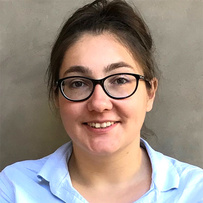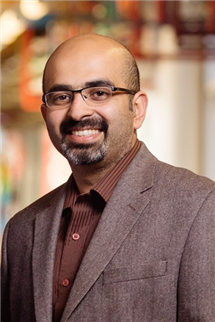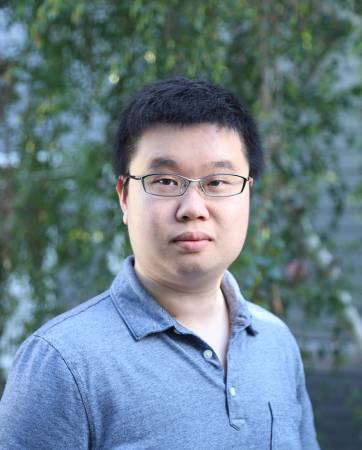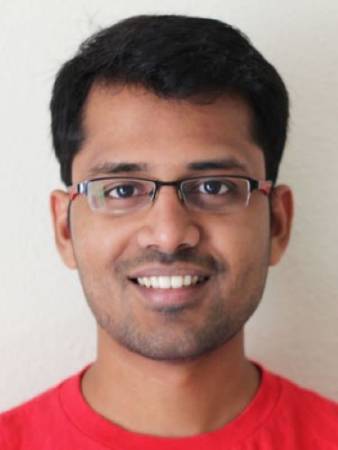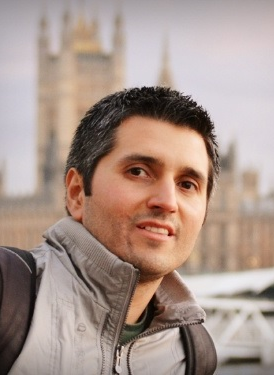Seminar
Hybrid Methods for the Integration of Heterogeneous Multimodal Biomedical Data
Abstract: The prevalence of smartphones and wearable devices for health monitoring and widespread use of electronic health records have led to a surge in heterogeneous multimodal healthcare data, collected at an unprecedented scale. My research focuses on developing machine learning techniques that learn salient representations of multimodal, heterogeneous data for biomedical predictive models. The first [...]
The Robots are Coming – to your Farm! AKA: Autonomous and Intelligent Robots in Unstructured Field Environments
Abstract: What if a team of collaborative autonomous robots grew your food for you? In this talk, I will discuss some key advances in robotics, machine learning, and autonomy that will one day enable teams of small robots to grow food for you in your backyard in a fundamentally more sustainable way than modern mega-farms! [...]
Self-Driving Cars & AI: Transforming our Cities and our Lives
Abstract: Recent algorithmic and hardware improvements resulted in several success stories in the field of Artificial Intelligence (AI) which impact our daily lives. However, despite its ubiquity, AI is only just starting to make advances in what may arguably have the largest societal impact thus far, the nascent field of autonomous driving. At Uber ATG, [...]
Improving Robot and Deep Reinforcement Learning via Quality Diversity and Open-Ended Algorithms
Abstract: Quality Diversity (QD) algorithms are those that seek to produce a diverse set of high-performing solutions to problems. I will describe them and a number of their positive attributes. I will then summarize our Nature paper on how they, when combined with Bayesian Optimization, produce a learning algorithm that enables robots, after being damaged, to adapt in 1-2 minutes [...]
Go, fastMRI, and Minecraft: Exploring the limits of AI
Abstract: The application of AI across various domains demonstrates both the promise of existing techniques but also their limitations. In this talk, I explore three recent projects and how they shed light on the progress of AI and the challenges to come. These projects include ELF OpenGo a reimplementation of AlphaZero, fastMRI for reducing the time [...]
Towards Weakly-Supervised Visual Understanding
Abstract: Learning with weak and self-supervisions recently emerged as compelling tools towards leveraging vast amounts of unlabeled or partially-labeled data. In this talk, I will present some of the latest advances in weakly-supervised visual scene understanding from NVIDIA. Specifically, I will summarize and discuss some challenges and potential solutions in weakly-supervised learning, and introduce our [...]
Imaging without focusing: A computational approach to miniaturizing cameras
Abstract: Miniaturization of cameras is key to enabling new applications in areas such as connected devices, wearables, implantable medical devices, in vivo microscopy, and micro-robotics. Recently, lenses were identified as the main bottleneck in miniaturization of cameras. Standard smaller lens-system camera modules have a thickness of about 10 mm or higher, and reducing the size [...]
Towards photo-realistic face digitization from monocular videos
Abstract: Recent advances in face capture now enable digitizing high-quality 3D faces for the entertainment industry. Standardized digitization solutions, however, require tailor-made capture systems and extensive manual work, making them expensive and hard to deploy. With the advent of commodity sensors, new lightweight approaches that push the boundaries of human digitization have been introduced, slowly [...]
Toward telelocomotion: human sensorimotor control of contact-rich robot dynamics
Abstract: Human interaction with the physical world is increasingly mediated by automation -- planes assist pilots, cars assist drivers, and robots assist surgeons. Such semi-autonomous machines will eventually pervade our world, doing dull and dirty work, assisting the elderly and disabled, and responding to disasters. Recent results (e.g. from the DARPA Robotics Challenge) demonstrate that, [...]
